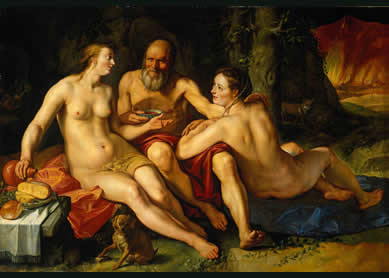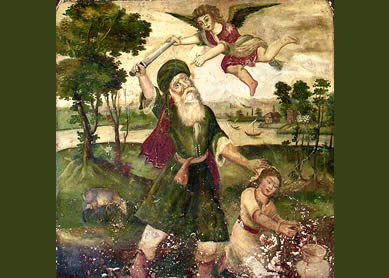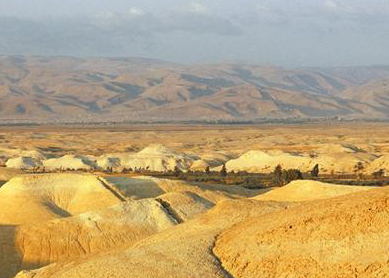The story of Lot and his daughters is the culmination of a larger narrative cycle, spanning
Lot displays poor judgment again when he abandons the town of Zoar, where he and his daughters have taken refuge. Fearing that it will be destroyed—despite the angels’ assurances that it would be spared on his account—he takes his two daughters to live alone in a cave in the hills. Isolated in the cave with their father, the daughters mistakenly conclude that they are the last people left alive on the earth. If Lot knows that only a few cities were destroyed and that soon the family can go out and find a new place to settle, he surprisingly fails to share this information with his daughters. Lot’s daughters decide that their father must impregnate them to continue the human race. Assuming that their father would not knowingly participate in such behavior, they get him drunk and sleep with him on two successive nights. Both daughters conceive and eventually give birth to two sons, Moab and Ben-ammi—the eponymous ancestors of the Moabites and Ammonites. This account of incest plays on these two names, which in Hebrew can be interpreted etymologically as meaning “from [his] father” and “the son of my people.”
Scholars describe this story as an etiological myth: that is, it explains the origin of something—in this case of the Moabites and Ammonites, two of Israel’s neighbors. There are many examples of such accounts in the Hebrew Bible. As Israel had a long history of hostile relations with the Moabites and Ammonites, it is not surprising that some of the biblical authors would have wanted to take a jab at them by recounting their origins as incestuous.
Bibliography
- Fewell, Danna Nolan, and David M. Gunn. Gender, Power, and Promise: The Subject of the Bible’s First Story. Nashville: Abingdon Press, 1993.
- Polhemus, Robert. Lot’s Daughters: Sex, Redemption, and Women’s Quest for Authority. Palo Alto, Calif.: Stanford University Press, 2005.
- Jeansonne, Sharon Pace. The Women of Genesis: From Sarah to Potiphar’s Wife. Minneapolis: Fortress Press, 1990.



